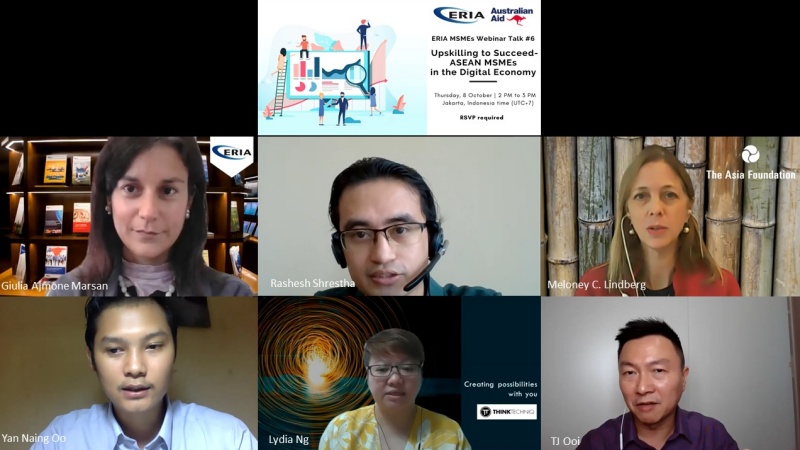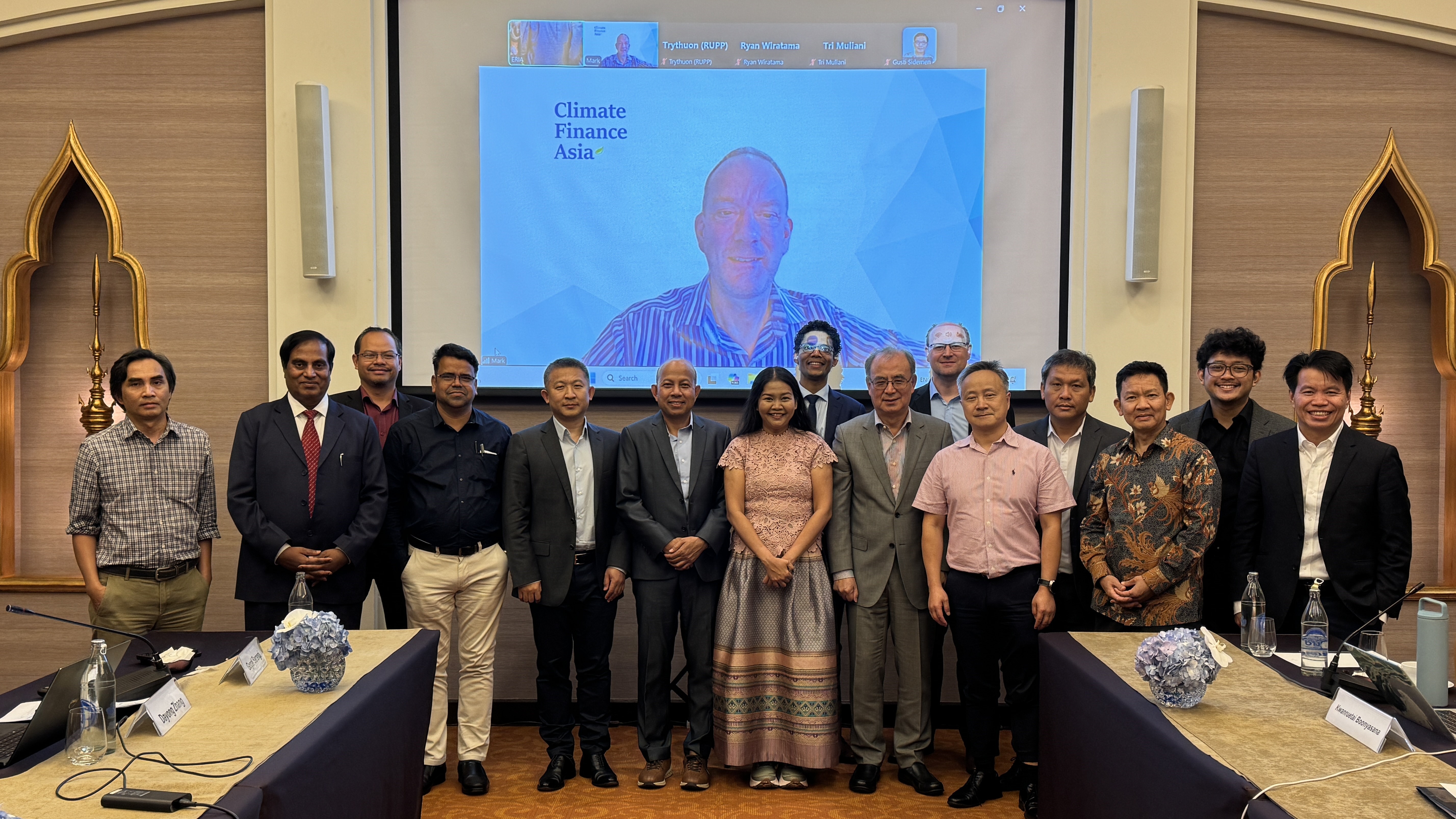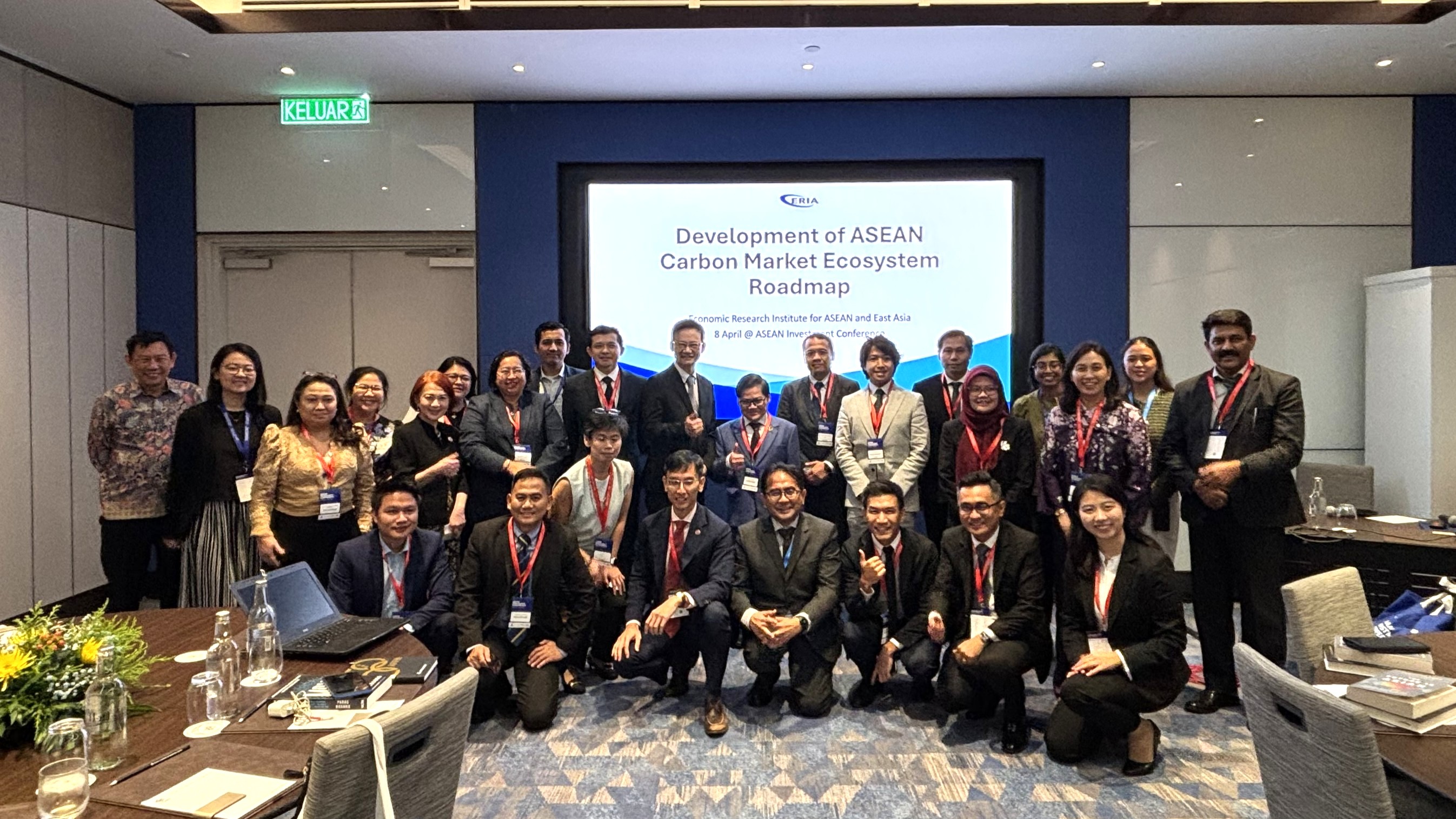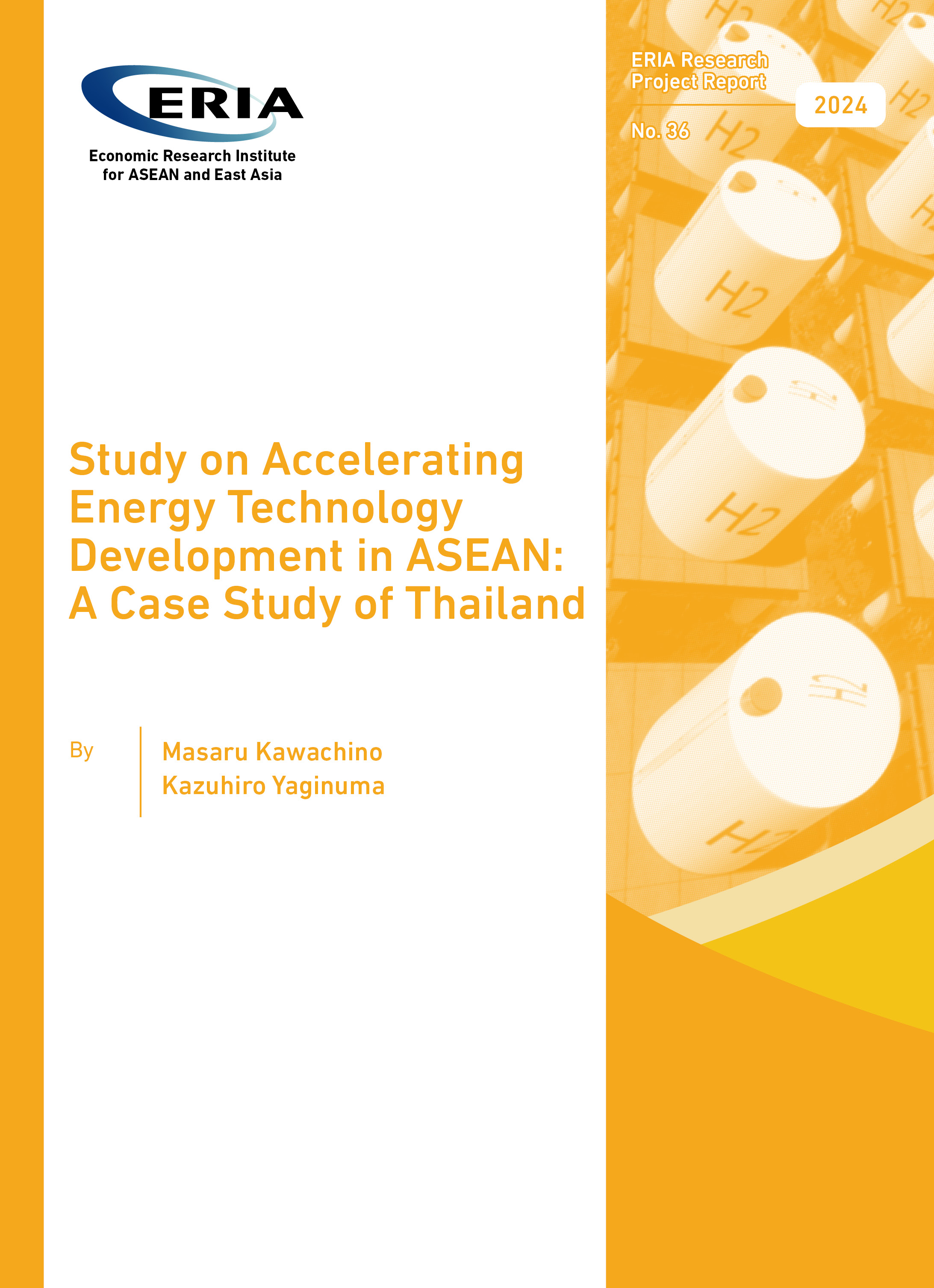ERIA Hosts the MSMEs Talk #6 - Upskilling to Succeed- ASEAN MSMEs in the Digital Economy
Date
8 October 2020Category
OthersShare Article:
Print Article:
Jakarta, 8 October 2020: ERIA hosted the MSMEs Talk #6 ‘Upskilling to Succeed- ASEAN MSMEs in the Digital Economy’. The webinar kicked off the second part of the MSMEs series organized under ERIA’s Strategy and Partnership Programme, funded by Australia. The webinar was held on 8th October 2020 and attracted more than 210 participants from the Asia-Pacific region.
In her opening remarks, Dr Giulia Ajmone Marsan, ERIA’s Director of Strategy and Partnership, emphasized the rapid acceleration of the digital transformation in ASEAN. She mentioned that the pandemic has accelerated the shift towards digitalisation which requires MSMEs to be equipped with the ability to continuously learn new skills and to collaborate with a broad range of stakeholders. She also highlighted the importance of combining a diverse range of skillsets from cognitive to non-cognitive for MSMEs to thrive and succeed.
Four speakers shared their views and perspectives:
- Yan Naing Oo, CEO & Co-founder, The Door Tech (Myanmar)
- Lydia Ng, Founder, Thinktechniq (Singapore)
- Meloney C. Lindberg, Country representative in Cambodia, The Asia Foundation
- Rashesh Shrestha, Economist, ERIA
The main messages arising from the discussion were:
- The importance of MSMEs to acquire a combination of different types of skills (both cognitive and non-cognitive) to thrive and succeed in the digital economy
- The increased value of non-cognitive skills, including team-working and collaboration skills to be able to partner with various stakeholders
- The role of local government to support and create a dynamic business ecosystem for MSMEs to thrive and succeed.
Mr Yan Naing Oo, CEO & Co-founder, The Door Tech from Myanmar noted the need to optimize digital tools to leverage business entities. He shared his experience on how digital tools have made it possible to expand his business from rural to urban areas in Yangoon, Myanmar. He also highlighted the importance of collaboration among various stakeholders (including MSMEs, larger companies, higher education institutions, NGOs, governmental agencies) to maximise impact.
Ms Lydia Ng, Founder of Thinktechniq in Singapore, discussed the importance for ASEAN entrepreneurs to develop a growth mindset. She gave an example of how she instilled such a mindset in small entrepreneurs by working together with the company employees. She also mentioned the importance of public policy to support business ecosystems, for example by providing monetary stimulus or by developing training programmes for MSMEs.
Ms Meloney C.Lindberg, The Asia Foundation Country Representative in Cambodia, described the recently established initiative ‘Go Digital ASEAN’, a programme implemented by the Asia Foundation and funded by Google.org that provides digital skills training for thousands of MSMEs in ASEAN, many of which are run by women and youth in rural areas. She also added that there is increased awareness amongst regional governments of the need to equip MSMEs with basic digital skills to promote inclusive development.
Dr Rashesh Shrestha, Economist from ERIA, stated that non-cognitive skills are increasingly important. The advent of digitalisation, ICT, and automation will replace some routine cognitive tasks, but tasks requiring non-cognitive skills are harder to replace by technology. He explained that non-cognitive skills cover behaviour, attitude, and values that can be acquired through training and are developed in social settings. They include skills such as team-working, social empathy, leadership, and management skills.
During the Q&A session, themes that emerged included the importance of: (i) on-the-job training (ii) urban and rural skills and digital divide across ASEAN (iii) collaboration between MSMEs and other actors such as education institutions.
Related Publications
- Skills Mobility and Development in ASEAN
- Education, Training, and Human Capital - Research
- ERIA Presents Video on the Future of Work in ASEAN
-
SMEs Need the Right Skills and Government’s Helping Hand to be Successful in E-commerce
MSME Talk News and Recording
- MSME Talk #1: ASEAN MSMEs in a COVID-19 World
- MSME Talk #2: Riding on the E-commerce Bandwagon: 2nd ERIA MSME Series Talk
- MSME Talk #3: ERIA Hosted Webinar on Overcoming GVC Disruptions for MSMEs
- MSME Talk #4: ERIA Hosts Webinar on Women Entrepreneurship Amidst COVID-19
- MSME Talk #5: Sustainability Practices for MSMEs in a COVID-19 World and Beyond
- MSME Talk #7: ERIA Holds Webinar on Agility and Resilience of Micro-Businesses Amidst and After the Pandemic








